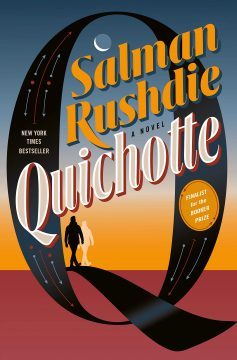Leanne Ogasawara in the Dublin Review of Books:
 The story of Don Quixote never gets old. First published (Book One, that is) in 1605, Cervantes’s novel continually makes the list of the greatest books of all time, being the second most translated after the Bible. In 2002, the Norwegian Academy of Science and Letters asked a hundred authors across the world to name their choice for “best novel” of all time: Cervantes won in a landslide. Considered by many people to be “the first modern novel”, it is a story of a man’s search for truth. It is also hilariously funny. I was not surprised to learn that it is one of the most requested books by the inmates at Guantánamo.
The story of Don Quixote never gets old. First published (Book One, that is) in 1605, Cervantes’s novel continually makes the list of the greatest books of all time, being the second most translated after the Bible. In 2002, the Norwegian Academy of Science and Letters asked a hundred authors across the world to name their choice for “best novel” of all time: Cervantes won in a landslide. Considered by many people to be “the first modern novel”, it is a story of a man’s search for truth. It is also hilariously funny. I was not surprised to learn that it is one of the most requested books by the inmates at Guantánamo.
As if reading the Quixote is not enough, there is also a long list of works that have been created over the centuries in direct homage to it. Most famous are Flaubert’s Madame Bovary and Dostoevsky’s The Idiot, both being intentional retellings of the story. But there are also more indirect, but still consciously influenced, works, like Kafka’s story “The Truth about Sancho Panz”a and GK Chesterton’s The Return of Don Quixote, not to mention pretty much everything Milan Kundera ever wrote. There is Jorge Luis Borges’s short story “Pierre Menard, Author of the Quixote”. My own favorite is Graham Greene’s Monsignor Quixote, about a priest in a small town in La Mancha, who claims he is a descendant of the famous knight errant, never mind that all his friends remind him that Don Quixote was a fictional character. Beyond literature, we have Massenet’s opera Don Quichotte and Petipa’s ballet Don Quixote, as well as Telemann’s marvellous Don Quixote Suite.
Salman Rushdie’ s new novel, Quichotte, is only the latest in the four-hundred-year-long history of Quixote spin-offs.
More here.
